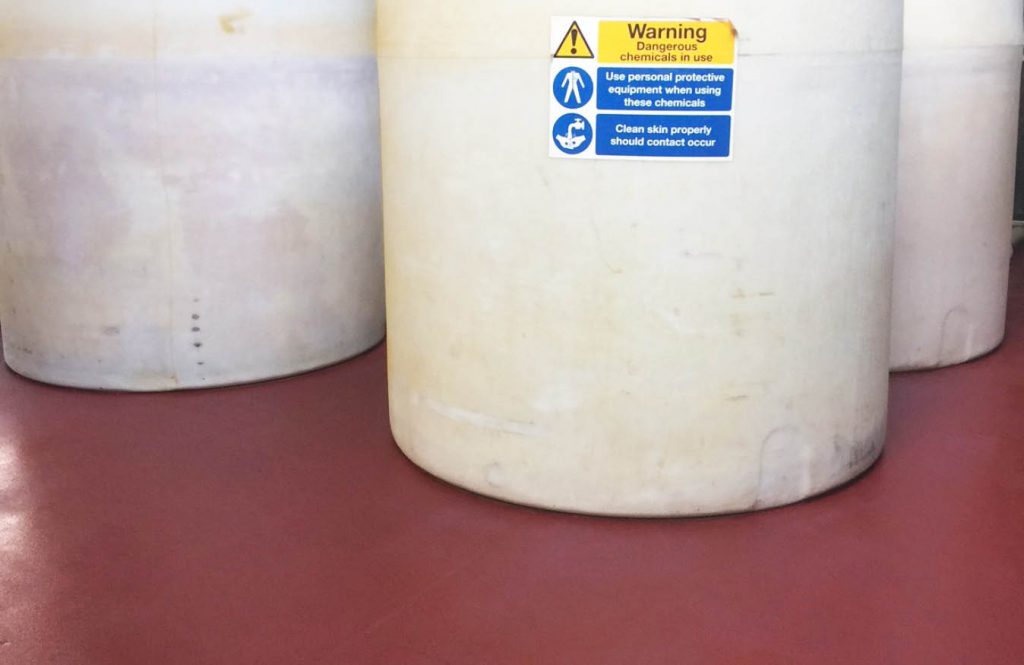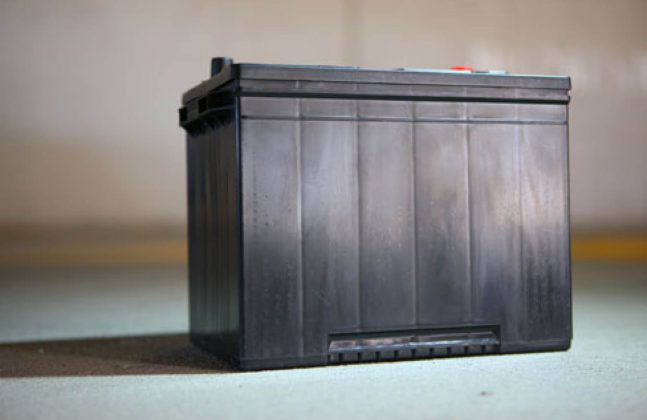There are some substances in life that are destined to be a pain in the neck when it comes to flooring – one of these is definitely battery acid.
Leaking battery acid is usually either muriatic or hydrochloric acid but either way it’s highly caustic, with a pH of 0-1, and easily capable of eating a hole in a concrete floor. In fact, the corrosive nature of battery acid means that it will do serious damage to most floor coverings.
The amount of damage that it does depends on the type of floor and the duration of contact. It might be possible to limit the amount of harm by cleaning it up early and neutralising the acid. This can be achieved by mixing a paste of soda and water to create baking soda (or sodium bicarbonate) which is alkaline.
Also, it goes without saying that if it can destroy concrete it can do serious harm to you, so always make sure that you wear rubber gloves and goggles when handling batteries with small leaks or call in expert help if the leak is more than you can comfortably cope with.
Battery Acid Resistant Flooring
If you have a workshop or a battery storage area where you really want to get to grips with acid issues, then there are highly chemical resistant flooring solutions that can be installed to protect the floor.
Vinyl ester resin systems are one of the best coatings around for withstanding highly concentrated acids, alkalis and solvents. Vinyl ester resin is a hybrid of polyester resin strengthened by the addition of epoxy resin to offer superior protection against damaging chemicals. Many vinyl ester systems will also be multi-layered to further improve the floor’s durability.

Vinyl ester floors are great at resisting even the most corrosive of chemicals!
Designed to coat secondary containment areas, Flowcrete UK’s Flowchem range includes several seamless, elastomer modified vinyl ester resin systems designed for tough environments. Vinyl ester resin systems are available that have been reinforced with glass fibres to further strengthen the lining.
There are a couple of things to bear in mind if you choose to install a vinyl ester floor. Mainly that it does give off a strong odour and so should be applied in well ventilated areas and that while it is fast curing, work should only restart in that space once the odour has gone.
Other Flooring Factors
It’s important to remember that there will probably be a number of other factors that play a role in determining the ideal flooring system for your environment. For example, impact damage, trafficking type, UV exposure, slip resistance and cleanability considerations can all play a part in picking the best floor finish.

Battery acid exposure might be one concern, but don’t forget to think about factors like impacts and point loading when choosing a floor finish
Because of these other factors you may want to consider an epoxy or polyurethane floor covering, as they will provide better chemical resistance than bare concrete (although not as good as vinyl ester) and may provide other operational benefits for the site in question.
If you’d like to discuss flooring for areas likely to face battery acid exposure just leave us a comment and one of our resin flooring experts will get in touch.





